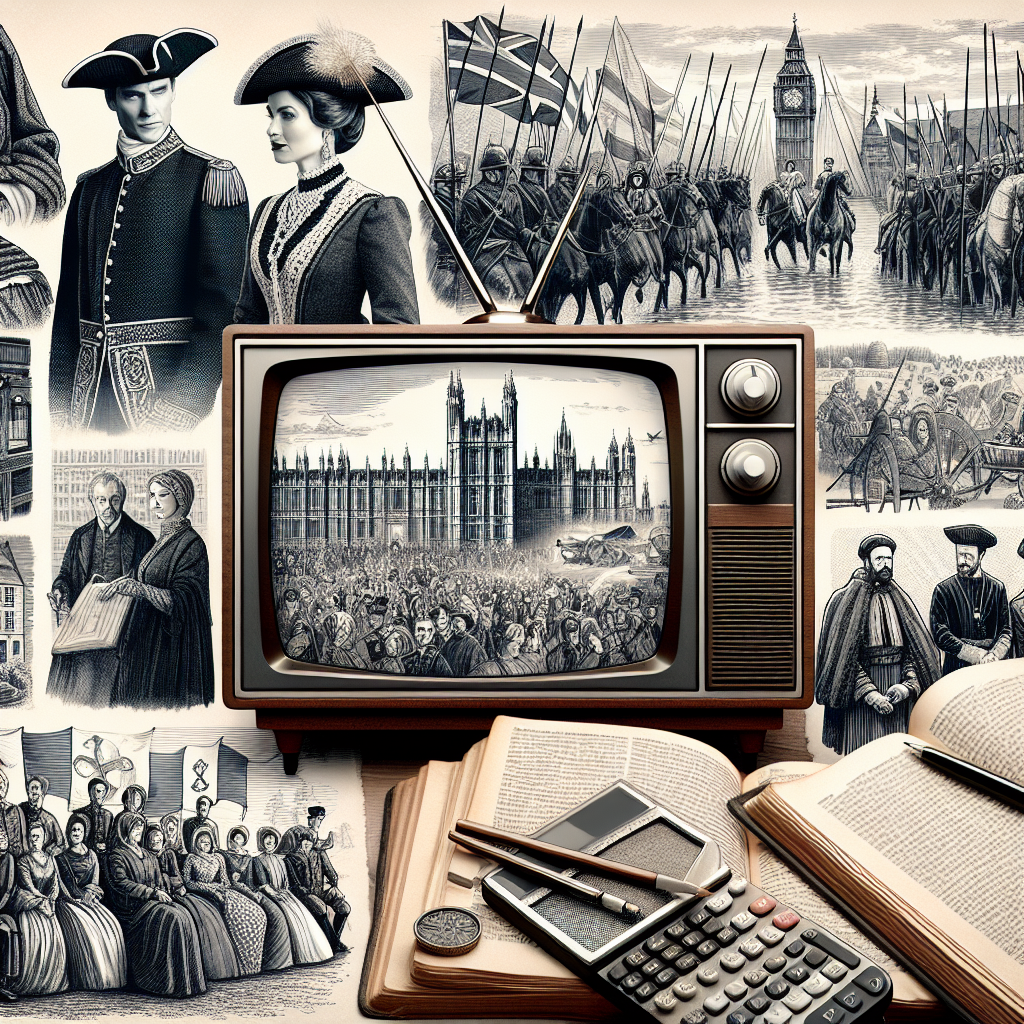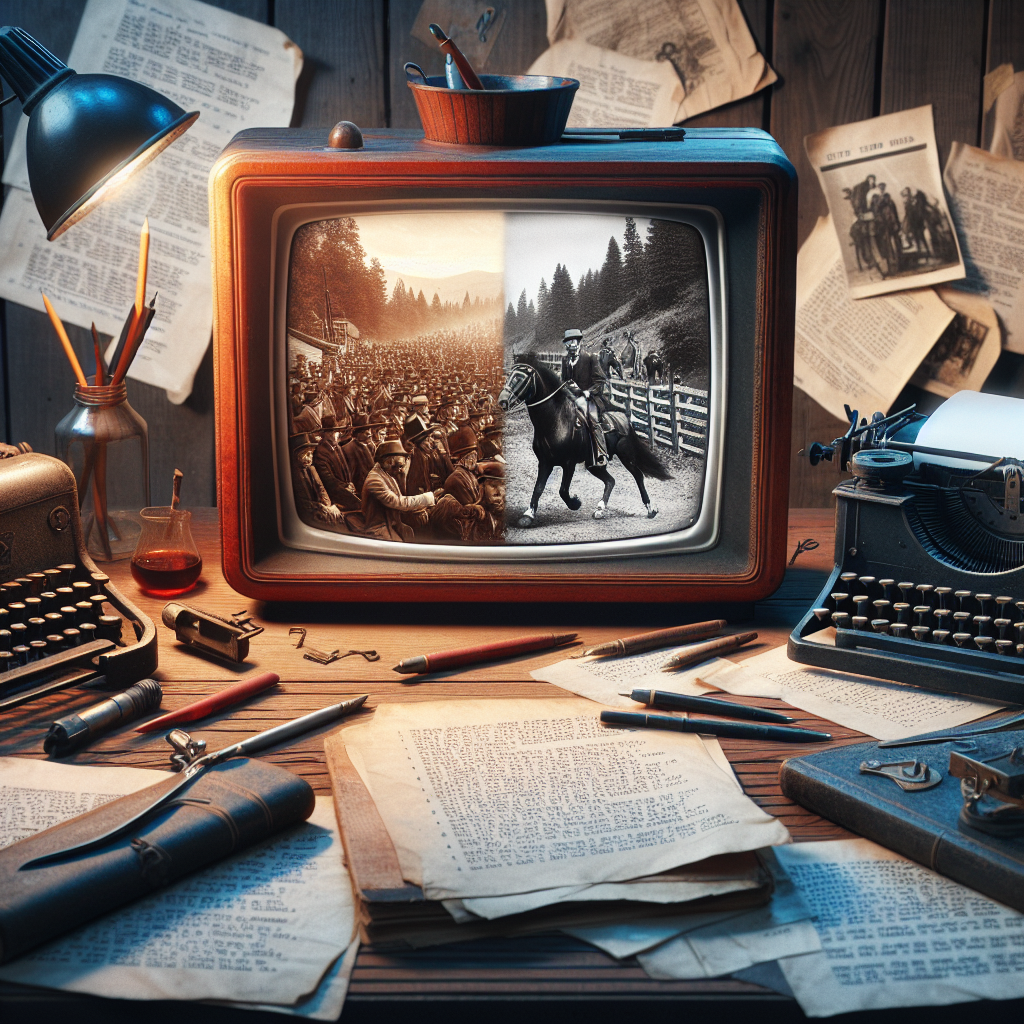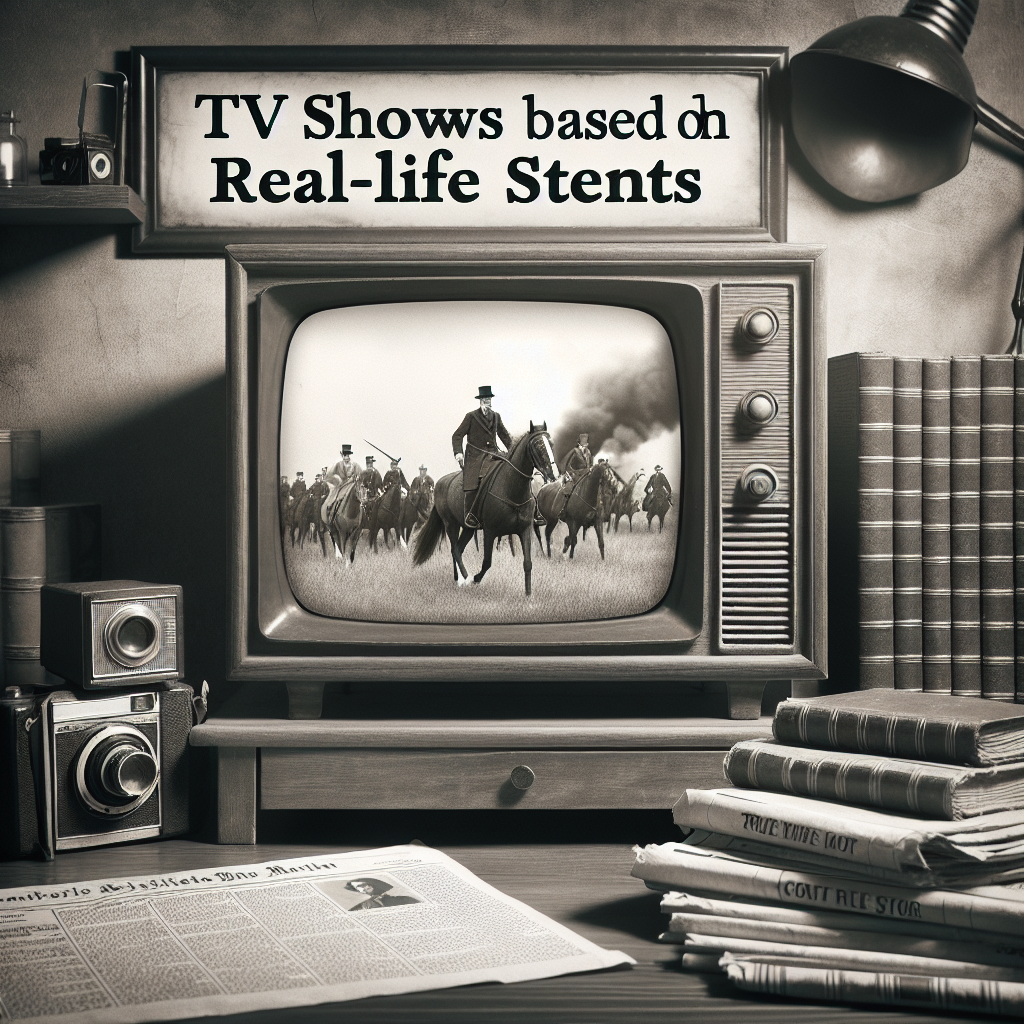
TV shows based on true stories have become increasingly popular in recent years, captivating audiences with their gripping tales of real-life events. From infamous crimes to heroic deeds, these shows aim to shed light on the truth behind the headlines. However, as viewers become more invested in these stories, questions about the accuracy and authenticity of these adaptations arise. Are they staying true to the facts, or taking creative liberties for dramatic effect? In this exploration of TV shows based on true stories, we will delve into the complexities of balancing entertainment with historical accuracy, and examine how these shows strive to recreate the past with precision and integrity.
Understanding TV Shows Based on True Stories
- Definition of TV shows based on true stories
TV shows based on true stories refer to television programs that are inspired by real-life events, individuals, or situations. These shows aim to portray events that have actually occurred, often incorporating elements of drama, suspense, or emotion to engage viewers. While some may take creative liberties for entertainment purposes, the core storyline is rooted in factual events.
- The popularity and appeal of such shows
TV shows based on true stories have gained immense popularity in recent years due to their ability to offer audiences a glimpse into real-life experiences. Viewers are drawn to the authenticity and relatability of these shows, as they provide a sense of connection to the world around them. The appeal lies in the idea that these stories are not just fictional creations but are based on real people and events, adding an element of intrigue and depth to the viewing experience.
The Process of Adapting True Stories for TV

When it comes to adapting true stories for television, the process involves a meticulous approach to ensure accuracy and authenticity while also catering to the entertainment needs of the audience. Here are some key aspects of this process:
- Research and Fact-Checking Procedures
Adapting true stories for TV begins with thorough research to gather all the necessary information and details about the real-life events or individuals being portrayed. This often involves studying historical records, interviewing eyewitnesses or experts, and delving into archives to uncover the truth behind the story. Fact-checking is a crucial step to verify the accuracy of the information gathered and ensure that the portrayal on screen aligns with the actual events that transpired.
- Balancing Entertainment Value with Historical Accuracy
One of the challenges in adapting true stories for TV is striking a balance between entertainment value and historical accuracy. While creative liberties may be taken to enhance the storytelling and engage the audience, it is essential to stay true to the core facts and essence of the real-life events. This delicate balance requires careful consideration to ensure that the integrity of the true story is preserved while also delivering a compelling narrative that captivates viewers.
In conclusion, the process of adapting true stories for TV is a complex and intricate endeavor that demands attention to detail, extensive research, and a nuanced approach to balancing accuracy with entertainment value. By following rigorous research and fact-checking procedures and carefully navigating the fine line between authenticity and creative interpretation, TV shows based on true stories can effectively convey the essence of real-life events while engaging audiences with compelling storytelling.
Examples of Successful TV Shows Based on True Stories
- “Chernobyl”
- This critically acclaimed miniseries chronicles the events surrounding the Chernobyl nuclear disaster in 1986.
- Through meticulous attention to detail and historical accuracy, the show garnered praise for its portrayal of the scientific, political, and human elements of the tragedy.
- “Chernobyl” not only entertained audiences but also educated them on the real-life consequences of the disaster.
- “The Crown”
- A dramatized depiction of the reign of Queen Elizabeth II, “The Crown” has captivated viewers with its exploration of the British monarchy.
- While the show takes creative liberties with certain events and dialogues, it strives to capture the essence of the historical figures and their relationships.
- “The Crown” has sparked discussions about the personal lives of public figures and the challenges they face in balancing duty and personal desires.
Breaking Down the Accuracy of TV Shows
Examples of Successful TV Shows Based on True Stories
- Analyzing the degree of accuracy in portraying real events
In assessing the accuracy of TV shows based on true stories, it is essential to delve into the level of fidelity exhibited in the portrayal of real events. This involves scrutinizing various aspects such as timelines, character depictions, and key plot points to determine how closely the show aligns with the actual events that transpired. By comparing the on-screen representation with historical records or firsthand accounts, researchers can gauge the extent to which the narrative stays true to reality.
- Identifying common discrepancies between true stories and their TV adaptations
One prevalent area of focus when evaluating the authenticity of TV shows based on true stories is pinpointing discrepancies between the original events and their televised adaptations. These variations can manifest in different forms, ranging from minor embellishments for dramatic effect to significant alterations that distort the core narrative. By cataloging and analyzing these discrepancies, researchers can gain insights into the creative liberties taken by show creators and assess how these choices impact the overall accuracy and authenticity of the portrayal.
Challenges in Portraying True Stories on TV
- Addressing ethical concerns when depicting real people and events
When creating TV shows based on true stories, one of the primary challenges is navigating the ethical considerations involved in portraying real individuals and events. Producers and writers must balance the desire to entertain audiences with the responsibility to accurately represent the experiences of those involved. This can be particularly complex when dealing with sensitive or controversial subject matter, as there is a fine line between honoring the truth and respecting the privacy and dignity of the individuals whose stories are being told.
- Dealing with limitations in historical documentation and evidence
Another significant challenge in bringing true stories to the small screen is the inherent limitations in historical documentation and evidence. Unlike fictional narratives where creators have the freedom to invent and embellish details, TV shows based on true events must adhere to the facts as much as possible. However, historical records may be incomplete, contradictory, or biased, making it difficult to reconstruct events with absolute accuracy. Producers and writers must carefully research and corroborate information to ensure that their portrayal is as authentic as possible while also acknowledging the gaps in the historical record.

Viewer Perception and Reception of True Story TV Shows
- Authenticity Perception among Viewers
Viewers often gauge the accuracy and authenticity of true story TV shows based on various factors, including the portrayal of real events, characters, and settings. The degree to which a show stays true to the original story can significantly impact how viewers perceive its authenticity.
Moreover, the attention to detail in recreating historical or true events, such as timelines, locations, and cultural nuances, plays a crucial role in shaping viewers’ perception of the show’s authenticity. Inaccuracies or dramatizations that deviate too far from the actual events can lead to skepticism among audiences regarding the overall credibility of the narrative presented.
- Impact on Public Perception and Understanding
True story TV shows have the potential to shape public perception and understanding of historical or real-life events. The portrayal of events on screen can influence how viewers interpret and remember these stories, potentially leading to a distorted or biased understanding if inaccuracies are present.

Furthermore, the emotional engagement and investment that viewers experience while watching true story TV shows can contribute to a lasting impact on their perception of the depicted events. This heightened emotional connection can further blur the line between reality and fiction, influencing how viewers internalize and remember the portrayed stories.
The Future of TV Shows Based on True Stories
In the ever-evolving landscape of television entertainment, the future of TV shows based on true stories is a topic of both intrigue and debate. As audiences become increasingly drawn to narratives rooted in real-life events, the production of such shows is expected to witness a surge in popularity.
Predicting trends in the production of true story TV shows
- Diversification of Stories: With a growing appetite for authenticity, TV networks and streaming platforms are likely to explore a diverse range of true stories across genres, including crime, politics, and human interest.
- Global Perspective: The future may see an expansion in the portrayal of true stories from a global perspective, shedding light on events and individuals from different cultures and regions.
- Interactive Storytelling: As technology advances, interactive storytelling techniques could be integrated into true story TV shows, offering viewers a more immersive and engaging experience.
Discussing the importance of maintaining accuracy in the age of digital media
- Ethical Considerations: In an era where information spreads rapidly through digital platforms, maintaining accuracy in true story TV shows is paramount to uphold ethical standards and avoid misinformation.
- Building Trust: Accuracy contributes to building trust with the audience, as viewers expect a certain level of truthfulness when consuming content based on real events.
- Impact on Real-Life Subjects: Ensuring accuracy in the portrayal of real-life subjects is crucial to respect their experiences and avoid misrepresentation or harm.
FAQs: TV Shows Based on True Stories
Are TV shows based on true stories always accurate?
While some TV shows based on true stories strive for accuracy, it is important to remember that these are still fictionalized adaptations. The production and storytelling process often involves some degree of creative license, which may lead to inaccuracies or exaggerations. Viewers should approach these shows with a critical eye and do their own research to verify the authenticity of the events depicted.
How can viewers determine the authenticity of a TV show based on true stories?
Viewers can assess the authenticity of a TV show based on true stories by conducting their own research into the real events or individuals portrayed. Fact-checking with reliable sources, reading books or articles related to the true story, and comparing the show’s depiction with historical records can help viewers separate fact from fiction. Additionally, seeking out interviews or statements from individuals involved in the real events can provide valuable insights into the accuracy of the portrayal.
Why are TV shows based on true stories popular in the entertainment industry?
TV shows based on true stories are popular in the entertainment industry because they provide a unique opportunity to explore real-life events and individuals in a dramatized format. Audiences are often drawn to stories that are based on true events due to the added layer of authenticity and emotional resonance. Additionally, true story adaptations can attract viewers who are interested in learning more about historical events or figures in an engaging and entertaining way.





